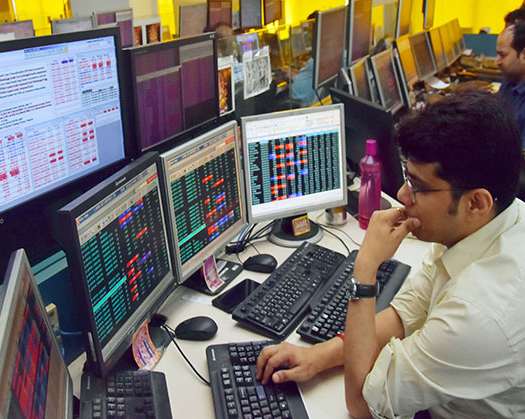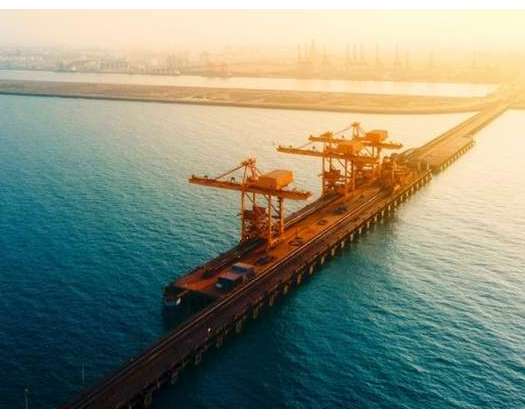Mumbai: The domestic markets in India have entered a phase characterized by volatility, influenced by both global economic trends and fluctuations in local economic indicators, as per the Union Bank of India's report.
In the realm of government bonds, there was a slight softening in the yield of the 10-year bond, settling at 6.82 percent, a decrease from the previous trading session, whereas the yield of the 5-year bond remained unchanged at 6.76 percent. This movement in bond yields is indicative of a cautious investor sentiment amidst prevailing global uncertainties.
Within the foreign exchange market, the Indian rupee experienced a notable depreciation, closing the day at Rs84.3725 per US dollar, a decline from the previous day's closing price of Rs84.2800. This depreciation of the rupee can be attributed to capital outflows, which exerted pressure on the currency as investors shifted their funds to perceived safer assets overseas.
The domestic stock market witnessed a significant downturn, with a decline of over 1 percent, nullifying the gains accumulated during the preceding rally. This decline was exacerbated by renewed volatility following the outcomes of the recent US presidential election, which introduced fresh uncertainties into the global market landscape.
Analysts have noted that these political shifts, coupled with forthcoming decisions by the central bank, have contributed to an environment characterized by caution within the Indian equity market.
Conversely, on the commodities front, Brent crude prices exhibited a downward trend in Friday's trading, reflecting diminished expectations for demand due to mixed signals from the global economy.
However, gold prices experienced a minor increase as investors sought refuge in safe-haven assets, in search of stability amidst escalating market volatility.
The Bank of England (BoE) announced a reduction of 25 basis points in its key interest rate, which now stands at 4.75 percent. This decision, endorsed by the majority of the Monetary Policy Committee (MPC), is a step in the ongoing efforts to manage inflation, which has been steadily declining.
In a related development, the United States Federal Reserve announced a reduction in its benchmark interest rate by 25 basis points on Thursday, indicating a positive outlook on the trajectory of the economy's recovery. It is anticipated that this adjustment will be made irrespective of any political changes that may occur following the upcoming US election.
In the Asian region, the People's Bank of China (PBoC) maintained its supportive stance. Governor Pan Gongsheng reassured international investors, underscoring the bank's dedication to policies aimed at fostering economic growth. Additionally, Pan committed to enhancing communication with financial markets and to further liberalizing China's financial services sector to accommodate international stakeholders.
Concurrently, data from Germany's industrial production sector revealed a 2.5 percent decline in September, marking a more significant decrease than initially anticipated, which suggests a deceleration in the manufacturing sector of the country.
Elsewhere, the euro area witnessed a modest increase in retail sales by 0.5 percent from August to September, with a year-over-year growth rate of 2.9 percent across the Eurozone. These figures reflect a cautious yet optimistic perspective on consumer spending within the European Union.
On a global scale, 2024 is projected to be the warmest year on record, as per the Climate Change Service agency of the European Union. This declaration comes in the lead-up to the UN COP29 climate summit in Azerbaijan, during which nations are anticipated to discuss and potentially increase funding for climate initiatives. However, the outcome of the recent US election has cast a shadow of uncertainty over the potential success of the summit.
Domestically, BVR Subrahmanyam, the CEO of Niti Aayog, discussed India's potential to become a key participant in major global trade agreements, notably the Regional Comprehensive Economic Partnership (RCEP) and the Comprehensive and Progressive Agreement for Trans-Pacific Partnership (CPTPP).
Subrahmanyam emphasized the potential advantages of these agreements for India's Micro, Small & Medium Enterprises (MSME) sector, which currently represents 40 percent of the nation's export volume.












